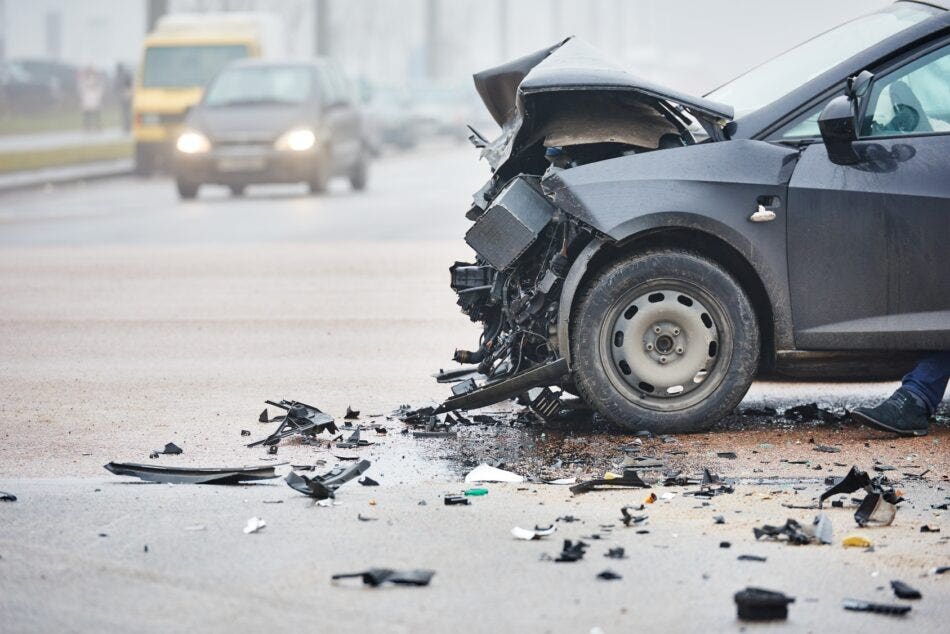What happens when you allow friends or family to drive your car?
Your close friend, roommate or family member asks to borrow your truck to move or your car to run an errand. You want to be helpful and lend your vehicle out, but you’re worried about if you’re covered if they’re in an accident. Will your car insurance cover your vehicle if someone else is driving it? Or would their insurance cover the damage? Should you let others drive your car?
The decision to let others drive your car is up to you – but this article will help explain the potential consequences.
My friend had an accident while driving my car. Am I covered?
Your friend’s car is in the shop for the weekend and they ask to borrow yours to get to work and get groceries. You agree, wanting to help a friend out. Not a problem, right?
Saturday afternoon, you get a phone call. Your friend has been an accident involving your vehicle. They’re okay, but your car is pretty banged up. Now what?
You’re lending your car and your insurance
Whenever you lend your car to someone you are also lending your car insurance. The insurance follows the vehicle. So even if you’re not driving, it’s your car insurance that will respond if your vehicle is involved in an accident. This also means that you will now have a claim on your record, even though you weren’t the one driving. You’ll need to submit the claim through your insurance.
Keep in mind if your vehicle is being used for commercial purposes (if someone is paying you to ‘rent’ your car or using it to drive for a ride-sharing company or something similar) you will likely not be covered! Commercial use isn’t covered by a personal auto insurance policy.
If you’re lending a vehicle to someone who lives in the same household, they should be added to your policy as an additional insured (if they’re on the vehicle’s registration) or an additional/occasional driver. If they’re already on the policy, you should have zero problems with lending your car to them.
A Lending Scenario
For example, let’s say you lend your car to your friend Pat. While out running his errands, Pat hits another driver in the parking lot. While both vehicles only have minor damage, there is a little scratch and dent.
Pat would need to cover the costs of repair out of pocket or you would need to submit a claim through your insurance company. Pat should provide your insurance and contact information as well as his own contact information.
If the other driver was the one who backed into Pat and your car, they would be responsible for covering damages. You’d still need to file a claim if they were going through insurance but it wouldn’t negatively impact you.
What if your friend has car insurance?
Your friend had car insurance – why isn’t their policy covering the costs? Your vehicle isn’t listed on their policy, it’s on your own car insurance. Car insurance is attached to the vehicle, which is why it’s your policy that will respond.
What does that mean for your insurance?
If your friend is determined to be at fault (if they’re driving in an at-fault province), you will now have an accident on your insurance record and your rates will likely increase. Your insurance will respond as per the coverage you have. For example, if you only have liability coverage, this will only cover damage and medical costs for the others involved in the accident if your friend was at fault. Your vehicle won’t be covered unless you have collision coverage.
If your friend isn’t at fault or the fault is partial, the other parties’ involved may cover the damage. It will depend on the individual situation.
Risks of Lending Your Car to Others
The risks of lending your car to others include:
- An accident damaging your vehicle.
- An increase to your car insurance if there’s a claim.
- Being sued personally for damages if the person who borrowed your car drives under the influence or is driving without a license.
Before you lend your car
There’s a lot at stake when you lend your car. For that reason, it’s wise to think twice and double-check information before handing over the keys. For instance:
- Check your policy or call your independent insurance broker to get the specifics on the terms conditions and any restrictions of your car insurance coverage. You want to make sure you won’t be out-of-pocket should something unexpected happen.
- Make sure that your friend has a valid driver’s license.
- Double-check to make sure your friend has a current car insurance policy.
- Verify that your registration and insurance information are in your glove box. Your friend will need this should a collision occur.

